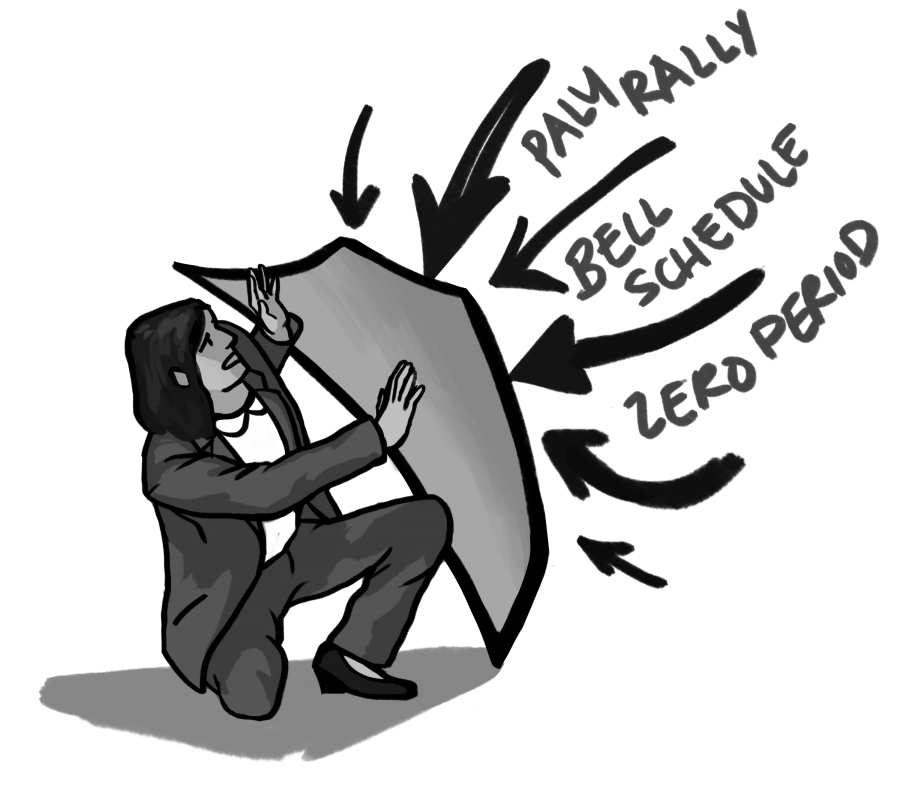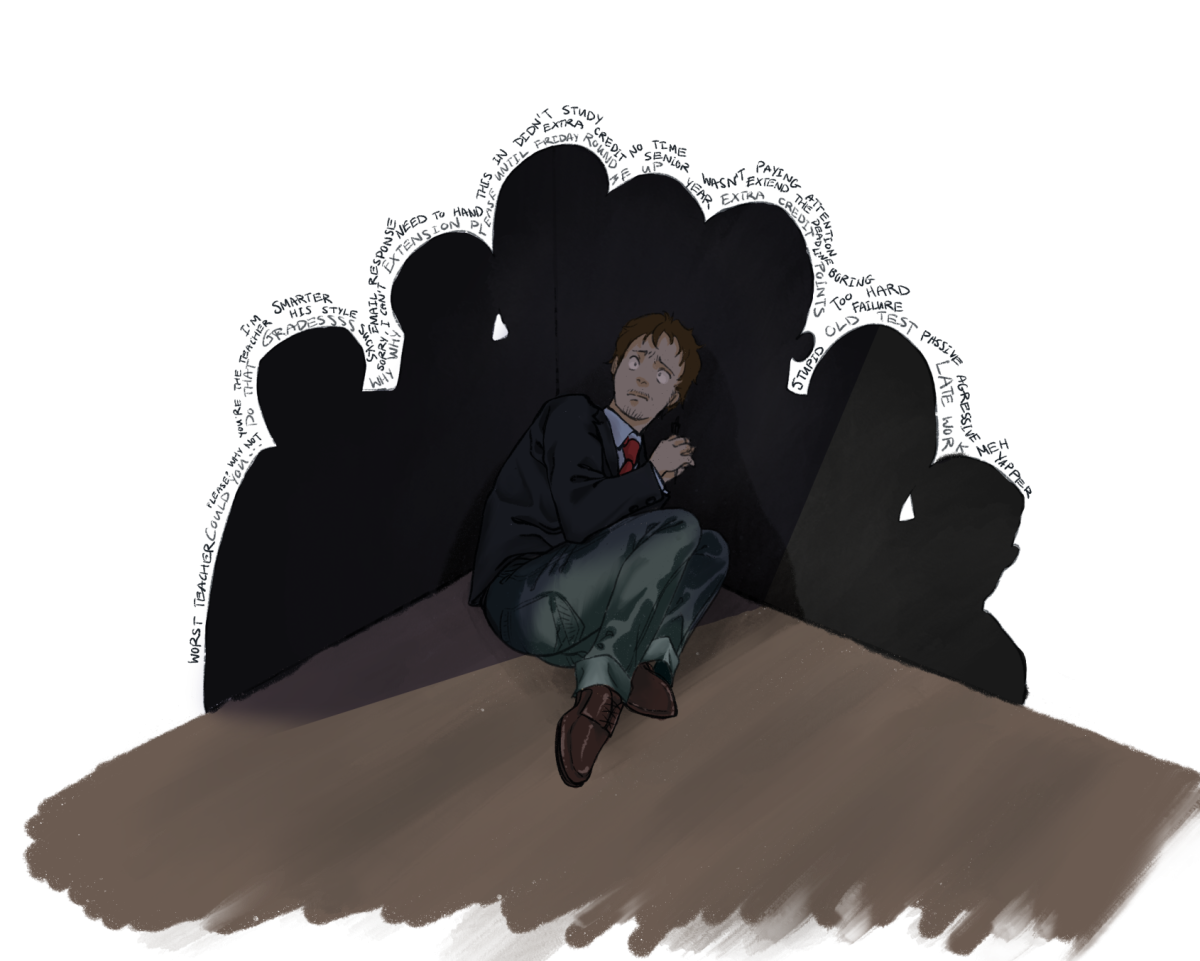By Matthew Hamilton
As you pull into Gunn High School one of the first things you see is the office, filled with administrators who interact with students every day, who visit classes, who stand in the walkways during pass- ing periods and who can be seen across campus on golf carts or talking to teachers. Members of the administrative team attend sports games and rallies, conduct assemblies, chaperone dances and attend school plays. They are in contact with Gunn students every day, but when chang- es are made to the lives of the students they see so often, either the changes come from the Palo Alto Unified School District (PAUSD) office, or the administration avoids taking ownership of decisions by using a recent district change to deflect students’ criticism and opinions.
Consequently, decisions have been handed down from the PAUSD office that are out of touch with the reality of Gunn’s student life. Based on reporting done by The Oracle, these actions demonstrate a pattern of the Gunn administration deflecting blame on many consequential decisions to the district and school board instead of taking accountability for the changes to student life at Gunn, leading to decisions that are not aligned with the reality of student life.
The majority of major changes made to student life at Gunn, ranging from scheduling to social life, have been made by the district and school board while the Gunn administration has remained idle. Starting with the controversial elimination of zero period classes, a pattern began to emerge. A change would come from the PAUSD office, concerned students would turn to the Gunn administration for answers, but would find an administration member informing them that unfortunately the administration could not take a course of action on the issue because the district or school board had made its decision. It is understandable for one issue, but has become infuriating as the same chain of events repeats itself, always ending with the administration playing a minimal role in the recent district or school board decision.
The 2014-2015 school year revealed the first of many decisions made by the district instead of the administration. In a letter from Superintendent Max McGee, students learned that zero period classes, with the exception of Physical Education and Video Production, would no longer be offered. Many students were upset and felt that the decision made by the district was out of touch with the reality at Gunn. When a forum was held for students to voice their concerns, not one of the adults answering questions was a member of the Gunn administration.
It seemed as if the 2015-2016 school year would go by without any changes mandated by the district or school board, but the recent cancellation of the Paly Rally proved this school year would come with changes as well. The Paly Rally was eliminated by the administration as reported in the January issue of The Oracle. Students with concerns found an administration repeating that they could not get involved because the decision was based upon a recent change to PAUSD’s sexual harassment policy.
Gunn’s decisions should not be made in 25 Churchill Ave. Members of the Gunn administration know much more about the student experience at Gunn and are in the best position to make changes to Gunn as needed. They talk to students and know that some students attend morning practices and could benefit from a zero period course. Members of the administration visit classes, witness students during passing periods and are more qualified to determine students’ opinions on events like Paly Rally. The administration is in the best position to make changes to Gunn and should be the ones held responsible for doing so.
Decisions made by the administration such as the elimination of the Paly Rally should be backed up by the administration’s on-campus experiences. Instead of substantiating the decision with a school board policy, the administration should answer student concerns with observations from campus.
When decisions do come from the district or the school board, it leaves Gunn students with no outlets to voice their criticism. When a decision such as the zero period cancellation is announced, the administration makes clear that the district is the orchestrator of the decision, making it harder for Gunn students to voice their opinions to the relevant authority figure. It is much easier for Gunn students to hold the administration accountable than to hold the district or school board accountable. School board members and district officials are much harder for Gunn student to contact, thus the administration is the preferred actor for most, if not all, consequential decisions.
Instead of allowing the district and school board to control the student experience at Gunn, the administration should advocate for students. If the administration agrees with a decision from the district or school board they should clearly communicate that to Gunn students. This provides students with an outlet for criticism and concerns that is on campus instead of at a school board meeting across Palo Alto. If the administration disagrees with the decision from the district, they may not be able to change the policy, but they should advocate for Gunn students based on the knowledge they gain from being on campus every day. Following this model would allow for the administration to make the majority of decisions that affect Gunn students, but when the district inevitably does make changes, Gunn students will then have an outlet on campus to voice their concerns.












